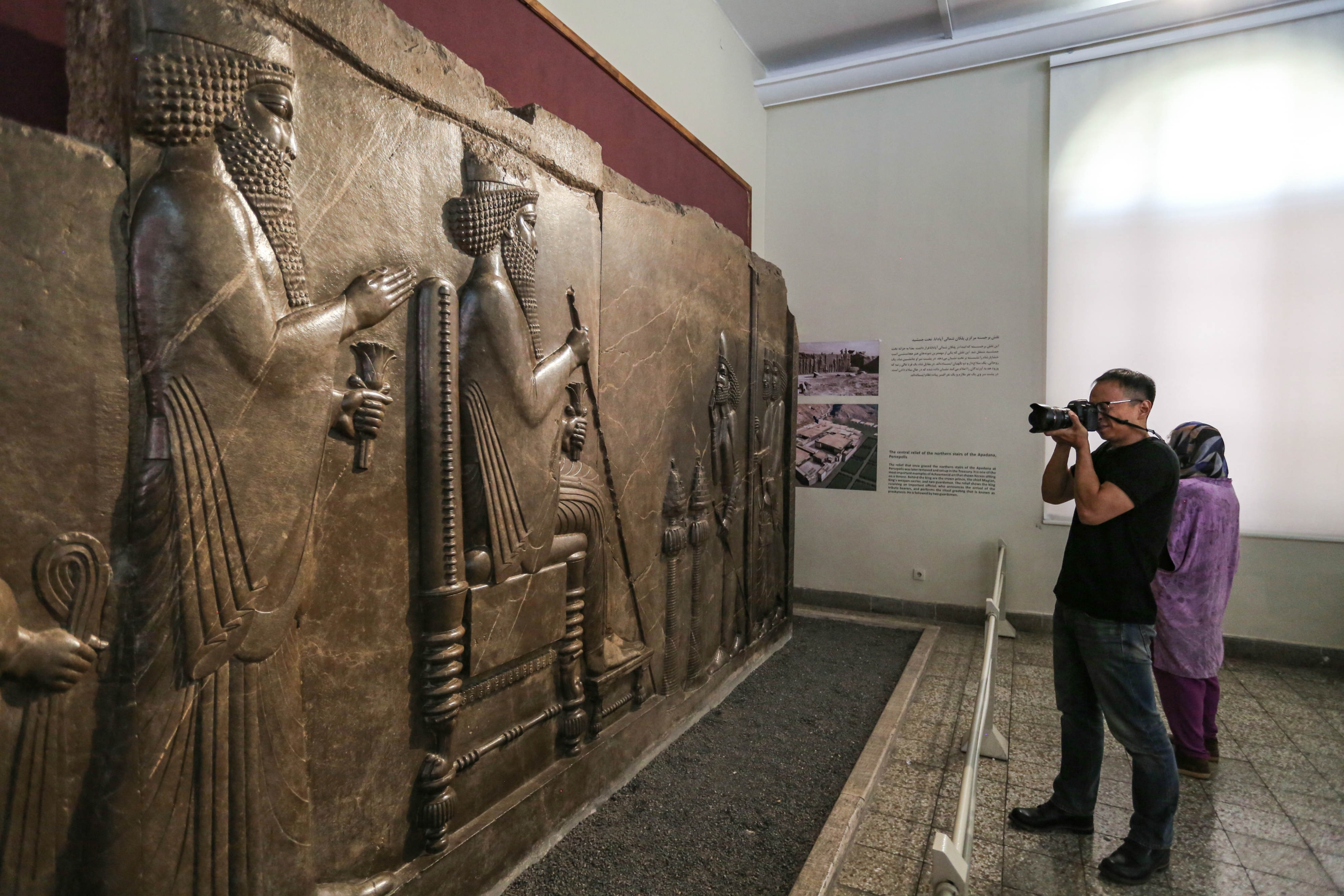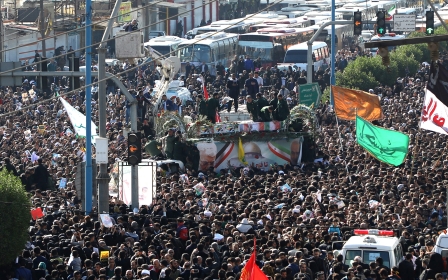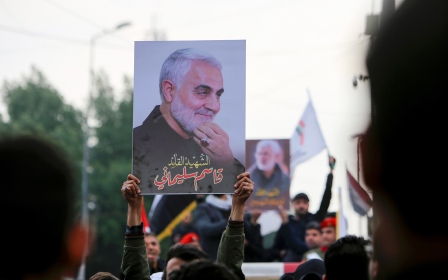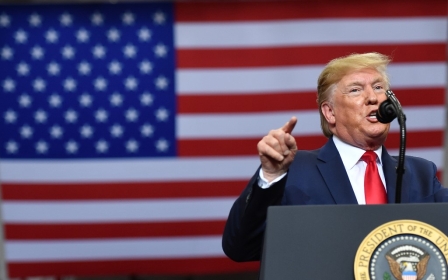'Terrorist in a suit': Condemnation of Trump's threats to target Iran's cultural sites

There has been condemnation of US President Donald Trump's threat to target Iran's cultural sites if Tehran attacks US assets in the Middle East.
Iran described Trump as a "terrorist in a suit" after he threatened to target 52 sites across the country, including some "important to... Iranian culture" following Tehran's pledge to avenge the death of Qassem Soleimani, who was killed in a US drone strike on Friday.
Trump made his threats in a series of tweets in response to condemnation by Iranian officials after the US president ordered the assassination of Soleimani.
The United States has "targeted 52 Iranian sites," some "at a very high level and important to Iran and the Iranian culture, and those targets, and Iran itself, WILL BE HIT VERY FAST AND VERY HARD," Trump said.
He added that the 52 targets represented the number of American hostages held by Iran in the US embassy in 1979 during the country's Islamic revolution.
New MEE newsletter: Jerusalem Dispatch
Sign up to get the latest insights and analysis on Israel-Palestine, alongside Turkey Unpacked and other MEE newsletters
US Secretary of State Mike Pompeo denied on Sunday that Trump said he would target Iranian cultural sites.
"President Trump didn't say he'd go after a cultural site - read what he said," Pompeo said on Fox News.
Responding to Trump's tweets, Javaz Azari-Jahromi, Iran's information minister, tweeted: "Like ISIS, Like Hitler, Like Genghis! They all hate cultures. Trump is a terrorist in a suit. He will learn history very soon that nobody can defeat Iranian national and culture."
Iran's Foreign Minister Mohammad Javad Zarif condemned Trump's comments and said that targeting cultural sites would be tantamount to "war crimes".
"Targeting cultural sites is a war crime," Zarif tweeted on Sunday. "Whether kicking or screaming, end of US malign presence in West Asia has begun."
United Nations resolution 2347 condemns the unlawful destruction of cultural heritage.
Tehran also summoned the Swiss ambassador, who represents US interests in Iran, in response to Trump's threats and described his comments as similar to Mongol threats to ransack cultural sites.
'America has gone down this path before'
Trita Parsi, executive vice president at the Washington-based Quincy Institute for Responsible Statecraft, told Middle East Eye: "Donald Trump's reckless threats to bomb 52 sites in Iran, including cultural sites, constitute another dangerous escalation that may divert headlines from impeachment, but only at the cost of making America less safe.
"Only a few months ago, Trump called off an attack on Iran with 10 minutes to spare, leaving his advisors in shock. Trump showed restraint and insisted - somewhat convincingly - that he did not want war.
"Now, however, he seems determined to elicit a violent reaction from Iran so that he can start a full-scale war. The only thing that has changed since this past summer is impeachment," Parsi said.
"It is increasingly difficult to find a logic in Trump's behaviour beyond his desperation to survive politically. But Americans and Iranians should not have to die for his political benefit.
"America has gone down this path before - an administration notoriously known for lying provides 'razor thin’ evidence to justify a military escalation that can spark a war and that puts Americans in peril.
"Last time, thousands of Iraqis and Americans were killed and an entire region was destabilized. This time, it will be worse," Parsi said.
Thousands mourn Soleimani across Iran
The ramping up of threats from both sides came as tens of thousands lined the streets of the Iranian city of Ahvaz on Sunday to mourn Soleimani's death.
Live state TV footage showed thousands of mourners marching through Ahvaz beating their chests.
Local authorities plan to take Soleimani's body to the holy city of Mashhad later on Sunday.
They will then take his body to Tehran and the holy city of Qom on Monday, for public mourning processions, then to his hometown of Kerman for burial on Tuesday.
Middle East Eye delivers independent and unrivalled coverage and analysis of the Middle East, North Africa and beyond. To learn more about republishing this content and the associated fees, please fill out this form. More about MEE can be found here.




